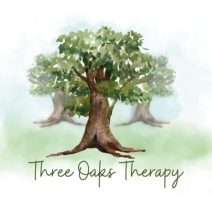Men's mental health has become more of a discussion topic over the last few years, yet there is still a long way to go. In a society where men are expected to be strong, independent, and invulnerable, it can be difficult to admit when we're struggling emotionally. However, it's important to recognise that men, just like women, face their own unique set of challenges when it comes to mental well-being.
One of the primary challenges men encounter is the stigma surrounding mental health. Society has long perpetuated the idea that men should suppress their emotions, resulting in the belief that seeking help or discussing personal struggles is a sign of weakness. As a result, many men suffer in silence, feeling isolated and unable to reach out for support. It's crucial that we challenge these harmful stereotypes and create a safe space for men to express their feelings without judgment.
Another obstacle men often face is the pressure to conform to traditional masculine ideals. We are conditioned to believe that strength means being stoic and self-reliant, which can hinder our ability to ask for help. We may feel compelled to handle our issues on our own, fearing that reaching out would make us appear inadequate. However, vulnerability is not a sign of weakness; it takes immense courage to acknowledge and address our struggles.
Additionally, societal expectations often dictate the roles men are expected to fulfil, whether it's being the breadwinner, the protector, or the pillar of strength. These pressures can contribute to stress, anxiety, and depression. Balancing work, relationships, and personal responsibilities can take a toll on our mental health, leaving us feeling overwhelmed and exhausted. Recognising the importance of self-care and setting boundaries is essential in maintaining our well-being.
It's crucial to acknowledge that men are not immune to mental health disorders such as depression and anxiety. However, the symptoms may manifest differently in men compared to women. Men may exhibit anger, irritability, or substance abuse as coping mechanisms instead of openly discussing their emotions. Understanding these differences and recognising when we need professional help is vital in overcoming these challenges.
To address the unique struggles faced by men, it's important to foster a culture of acceptance and support. Encouraging open conversations about mental health, both among men and within our communities, can help break down the barriers that hinder seeking help. Providing resources and accessible counselling services specifically tailored to men's needs is equally crucial.
Remember, you are not alone in your journey. Your mental health matters, and seeking support is a sign of strength. Let's challenge the stereotypes, overcome the stigma, and create a society where men's mental health is valued and nurtured.
If you are struggling with your mental health, please contact me at Three Oaks Therapy for compassionate support.
